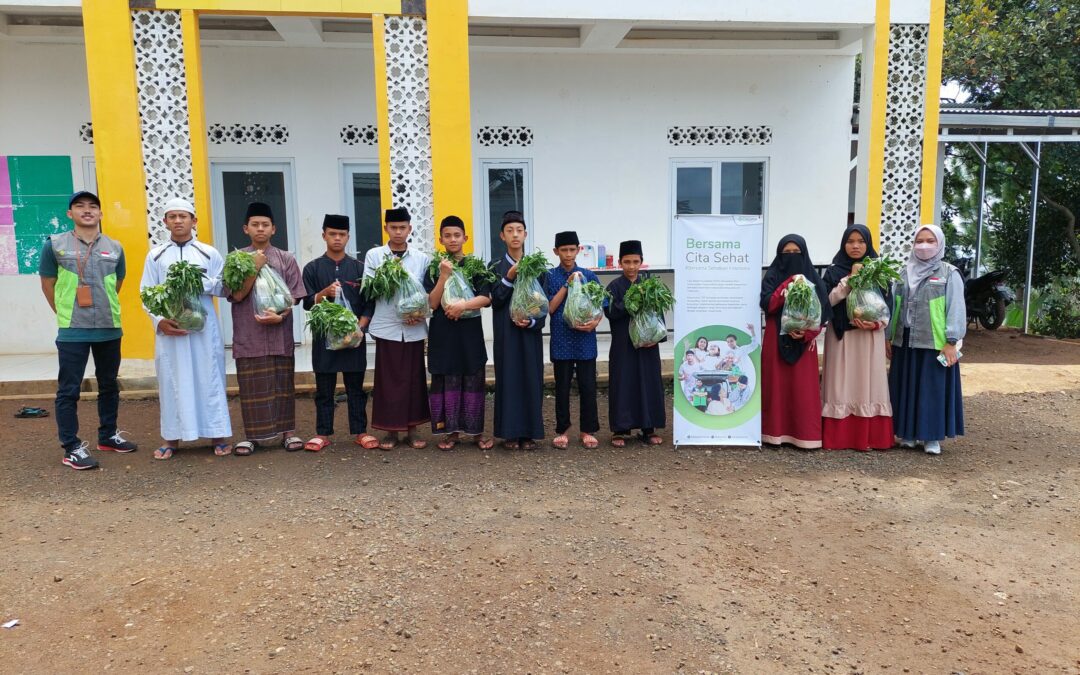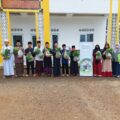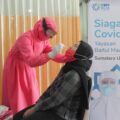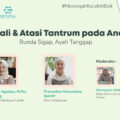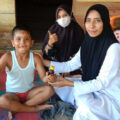SDGs (Sustainability Development Goals) are a universal call to end poverty, protect the planet and ensure that by 2030 all people enjoy peace and prosperity. This call manifested in 17 interrelated objectives designed as a shared blueprint established on 25 September 2015 at the United Nations (UN) Headquarters.
The development of all sectors in the SDGs is highly dependent on the active role of all stakeholders. They are the central and regional governments, the business world, the mass media, social institutions, professional organizations and academics. We often refer to the collaboration of these five parties as the Penta helix collaboration.
Cita Sehat takes on the role of a social organization that actively collaborates with many parties in implementing health programs to achieve the SDGs.
Cita Sehat participates in SDGs 2, namely ending hunger, achieving food security, improving nutrition, and promoting sustainable agriculture. CSF also contributes to SDGs 3: Ensuring a Healthy Life and Increasing the Welfare of All Populations of All Ages.
Some of CSF program activities that have contributed to the SDGs in Indonesia are the Primary Health Care Clinic, Friends of the Elderly, and TAS Bergizi (Reduce Stunting Rates with nutritious food).
CSF manages Klinik Pratama (primary health care clinic) intended for the general public and underprivileged people who need it through a currative health assistance program. Cita Sehat Pratama Clinic provides basic health facilities such as General Practitioner, Dental Care, MCH (Maternal and Child Health), and delivery at the Surabaya Clinic. Cita Sehat’s Clinic present in East Jakarta, Semarang, Pekanbaru, Yogyakarta, Surabaya, and partner clinics in Medan.
Cita Sehat Clinic does not only provide medical services but also health education as a promotional effort for patients and the underprivileged communities around the clinic. Through this program we contribute to SDGs 2: reducing maternal and infant mortality.
Sahabat Lansia (Elderly Friends)
This program focuses on preventing non-communicable diseases and promotive efforts by providing health education and nutritious food to elderly people with middle to lower economic status. This program also targets the middle age group according to WHO.
According to WHO, there are four stages/age limits, namely:
- Middle age (45-59 years old).
- Elderly (60-74 years old).
- Old age (75-90 years old).
- Very old age> 90 years.
This program will contribute to SDGs 2: meeting the nutritional needs of the elderly.
Tas Bergizi (Nutritious Bag) or Lower Stunting Rates with Nutritious Foods
Stunting and wasting are still big problems in Indonesia at the global level. Therefore, Cita Sehat will continue to make stunting and wasting one of the main programs in the organization’s activities.
This program will focus on promotive activities in providing education on the importance of nutritious food for pregnant and lactating mothers. Preventive activity is implemented by providing nourishing food for BGK toddlers (under the yellow line) and more intensive interventions for BGM Toddlers (under the red line) at weighing activities at the community health center.
This program contributes to SDGs 2, namely by 2030 ending all forms of malnutrition, namely stunting and wasting in children under 5 years of age.
Susilowati – Cita Sehat Foundation

